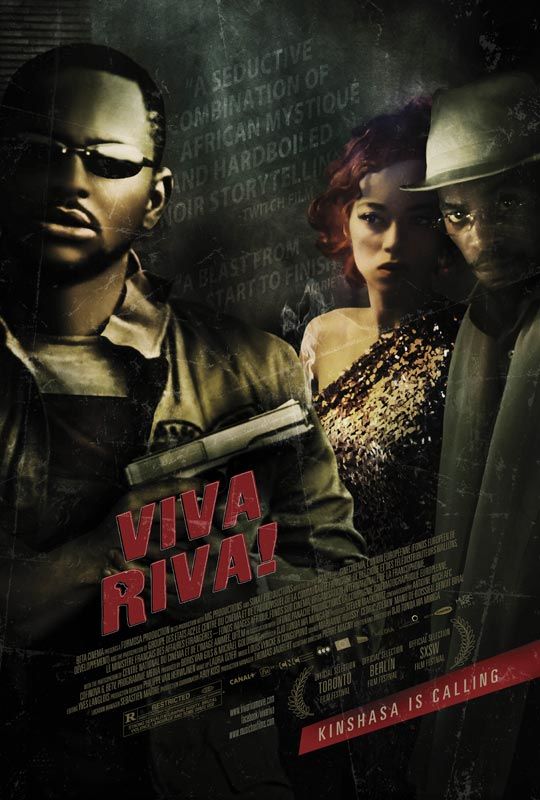 I was really looking forward to the opportunity to meet Djo Tunda Wa Munga, because I so enjoyed his uniquely Congolese film about the Kinshasa underworld, Viva Riva!. Our conversation ranged from the political and film structure in Congo, and how his country is perceived by the Western world. Then it hit side streets like Akira Kurosawa and Sergio Leone and noir from the ’30s / ’40s, and actors who are serpentine. Then I hit a button on a used digital tape recorder I borrowed and thought I’d lost the whole friggin’ thing. Luckily, though, that turned out to not be the case. Munga’s a very well-spoken Central-African gent who was schooled in Belgium and returned to try to bring film back to a country that has largely been without it for the last two decades. He’s off to a damn good start.
I was really looking forward to the opportunity to meet Djo Tunda Wa Munga, because I so enjoyed his uniquely Congolese film about the Kinshasa underworld, Viva Riva!. Our conversation ranged from the political and film structure in Congo, and how his country is perceived by the Western world. Then it hit side streets like Akira Kurosawa and Sergio Leone and noir from the ’30s / ’40s, and actors who are serpentine. Then I hit a button on a used digital tape recorder I borrowed and thought I’d lost the whole friggin’ thing. Luckily, though, that turned out to not be the case. Munga’s a very well-spoken Central-African gent who was schooled in Belgium and returned to try to bring film back to a country that has largely been without it for the last two decades. He’s off to a damn good start.
CHUD: The first question I’ve got to ask: you’re from Congo, the movie was filmed in Congo, have you ever seen the movie, Congo?
DJO TUNDA WA MUNGA: [Laughs] The movie with the gorillas? No. Is it good?
CHUD: It’s very kitschy, it’s very campy. You got guys in monkey suits running around killing people, so…it’s probably not quite the reality of Congo.
MUNGA: I’m getting a little nervous about this film.
CHUD: Are you trying to reestablish the film industry in Congo? Is that a priority for you? Or did it just so happen that you had an opportunity to make the film there?
MUNGA: No, it was not an opportunity. It was really important for me to make my first feature film in Congo. Because I graduated in Europe, when I finished, twelve years ago, and you think, “Where am I going to make my first feature film? Do I try to find my way in Europe or maybe move to America, or do I go back home?” It was important to go back home, first for…I won’t say political reasons, but…we can’t all leave, you know? It doesn’t make sense. And also, people like me, we’re not really immigrants. We were sent to Europe to study and we were supposed to go back. And so I had that debate, and that was one thing. And the other thing, I think, also in terms of cinema, we have Congo, but it’s also Kenya, it’s also many African countries. There are really really good stories to be told.
CHUD: Right, there’s also a big film industry in Nigeria.
MUNGA: Yes, in Nigeria they have their film industry. In the process of making the film, you ask yourself, “With whom am I going to make the film?” Do you fly in a hundred guys from Western countries? You want something to be local, which is also important artistically.
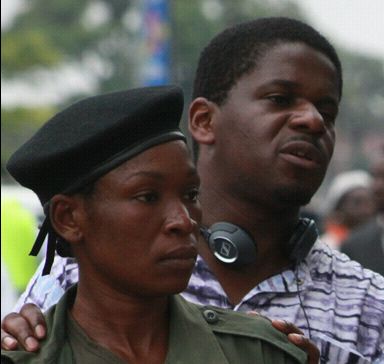
CHUD: Do you think an outsider could have made this film, with the kind of access that you had?
MUNGA: No. Because it’s too much organic process, you know? I did this training film once to help young filmmakers to come in…to grow. Also, I produced their documentaries and they worked on my film. What I see is organic. I can explain to them exactly what I want. Then it’ll be, “This is a cultural reference.” They’ll see the obstacles. They fight to find a way. And in their system, they were working almost 24/7. So it was organic, and it’s also the people they find. It’s the material they bring in. So you can have a guy to come into Kinshasa to make a nice film, but it would be different.
CHUD: Do you think Americans, Europeans…do we have the right idea of what it’s like in Congo? And what it’s been like the last 15 or 20 years?
MUNGA: I don’t think so. Because the reason is [things like] the rape situation. But you can’t see all of the country [or the] continent. It’s seen only from the angle of the rape situation. But I really think that we have something to offer. Something which is really different.
CHUD: What movie have you seen maybe in the last 10 years that has been about a country in Africa in general has gotten it the closest to what it’s like? Maybe Hotel Rwanda , The Constant Gardener…
MUNGA: The Constant Gardener was good. The acting in Hotel Rwanda was good also, but there wasn’t much organic in the film.
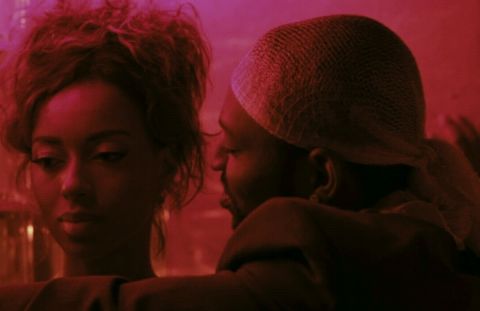
CHUD: When you were setting about to make this film, were the prospects for it looking better if you had brought in a name star, maybe guys like Adewale Akinnouye-Agbaje or Chiwetel Ejiofor, even though they’re British? Would it have been better if you could have brought in at least one?
MUNGA: No, I didn’t want to. Even if I had a nice proposition, I didn’t want to. For the first film, I wanted to be able to do more in the framework..which would really come out of the ground. Come out of Kinshasa. It’s not only acting, it’s also the way about moving, the body language. And the talking and the atmosphere. And I love a lot of these Black actors from Europe and America. But this is a project I really wanted to be rooted [to Congo].
CHUD: Are you looking to do your next film in-country again or are you looking to a broader market and the access that this is probably going to give you?
MUNGA: Both actually. I have two projects on the table. One of them is with China. I would love to make a film with the Chinese actors coming into Kinshasa. Because China is one of the biggest manufacturers in Africa in the last 20 years.
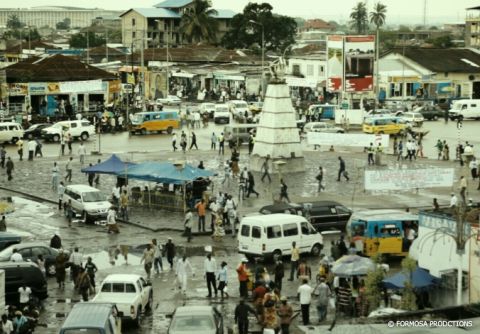
CHUD: Is there a large Chinese presence in Kinshasa?
MUNGA: Yes. Not huge, but quite serious. They’re coming there for minerals, business…to make money. But still, there are stories to be told. There is a humanity there that is interesting to talk about. And I have another project that I can maybe include an American actor or Black British actor, you know? Because it talks about the diaspora. So it’s set in Europe and it’s a different kind of project.
GUY: You shot this film in French and Lingala, I take it Lingala is the national language of Congo?
MUNGA: Yes, we have four national languages, Lingala is the dominant.
CHUD: Do most Congolese speak English as well as you?
MUNGA: First, we are a French-speaking country. But we lack the proper education, for the last 25 years, so it’s difficult. But some people up the road speak English. And you know, I receive many e-mails from Congolese in the U.S. giving me congratulations on the film. But, the way I made this film in Lingala, I would love to make a film in Swahili, because I’m from the east part of Congo, and we speak Swahili: Kenya, Tanzania.
CHUD: Right, and there are many Kikuyu [the main Kenyan tribe] in that part of Congo.
MUNGA: Right.
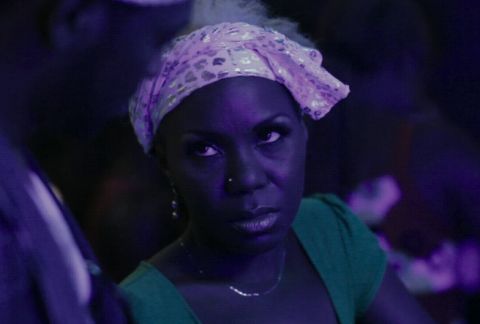
CHUD: Has Congo been worse or better than we’ve seen it in the news? Because the only news we ever get out of Congo is that there’s been fighting, there’s been rape, there’s been AIDS. And I’m sure that there’s so much more to it that we don’t get to see.
MUNGA: Well, the last 15 years, Congo has been much better than, 20 years ago, 30 years ago. The country is poor, but the good thing we have now, we have a kind of freedom. And that’s the reason you didn’t hear about Congo film industry before, was because of the dictatorship. There was no industry.
CHUD: Could you have made this film even five years ago?
MUNGA: Yes. But five years ago, funders, Westerners who backed this film, would have said, “Why make a film in Congo? Why don’t you make it in another place?”
CHUD: What kind of films influenced this one? Maybe a Tarantino film or a John Woo film? This is almost…African noir you could call it. And I haven’t seen much of that.
MUNGA: African noir, I agree with you. But actually, Tarantino, and Woo, we have something in common, and that’s Sergio Leone. Sergio Leone was such a huge influence in my filmmaking, and probably many others. I would say the film that most influenced me [for Viva Riva!] was a Japanese movie from Akira Kurosawa: Stray Dog. And it was really interesting, a stray cop looks for his gun. And he meets people and you get to see the underground world in Japan after the Second World War. I found it very interesting. And then in my studies, I started to look at old film noir of America in the ’30s and ’40s. I’ve seen a lot of the Hong Kong movies because I like them. So probably, they’re part of my blood now.
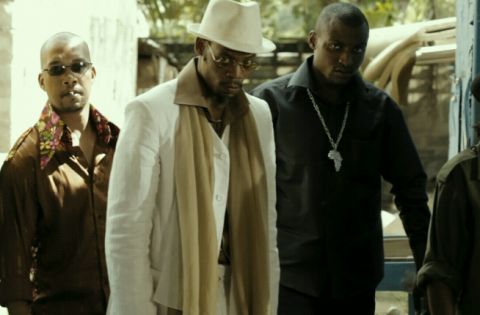
CHUD: Patsha Bay. Where’d you find this guy?
MUNGA: I found him last minute. For some reason, I couldn’t find the right Riva. [Bay’s] a musician, a singer. So last minute, I ended up casting the guy. He had this elegance and also the courage of Riva.
CHUD: He had the brashness.
MUNGA: Exactly. I thought he was the guy. I talked with him, he’s a hard working person, he wants to make it. It was really nice working with him.
CHUD: And Manie Malone?
MUNGA: She’s French Ivory Coast. I found her in Paris. The casting director was French. I didn’t find a proper actress in Kinshasa, especially since it was linked to a nude scene – because Africa is quite conservative still – and so I saw some actresses in Paris. And then I met Manie, and she had something wild.
CHUD: She had a seductiveness about her.
MUNGA: Right,yeah. A femme fatale thing and I was like, “Wow, this good.” But for me, the film was in Lingala, and I wanted her to be true. To be authentic. She came to Congo and learned Lingala for two months.
CHUD: Nice bit of dedication.
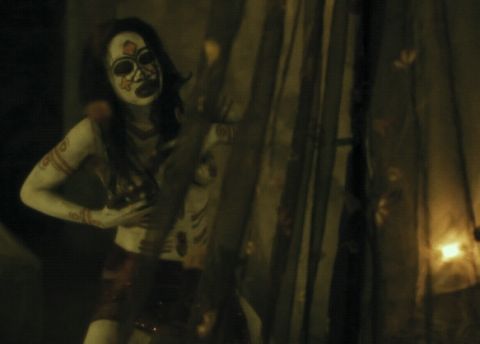
MUNGA: Absolutely. She learned Lingala, she learned to dance, she spent time with [Congolese] women. She looked around, she really got something of Kinshasa. And then she played it right.
CHUD: Marlene Longage, she’s Congolese.
MUNGA: Yes.
CHUD: This is her film debut, right?
MUNGA: Yes.
CHUD: Was she an around the way girl? Did you know her before?
MUNGA: I did know her before. And I was looking around the stage acting in Kinshasa years ago and I had met her. But then she disappeared. And then one day I bumped into her. I asked her where she’d been and she told me [acting] was too hard, and she had stopped. And I told her, to come to the casting and at least try. Then she came and she did the casting and she was very good. she won the Supporting Actress award at the African Movie Academy Awards. She deserves it.
CHUD: Hoji Fortuna, he’s…
MUNGA: Angolan.
CHUD: That guy moved like a snake.
MUNGA: [laughs] Yeah.
CHUD: It’s like he was looking for the best way to kill anybody he met.
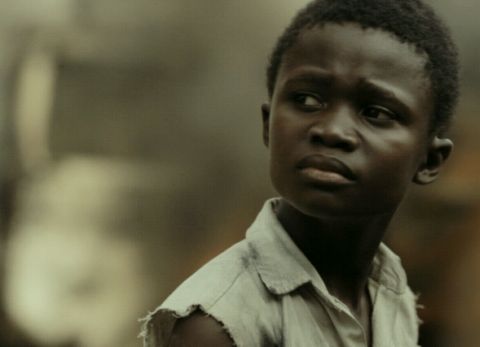
MUNGA: [laughs for a bit] Yeah, people get that from him. He has something.
CHUD: Well it was really a pleasure to meet you and I wish you great success on your movie.
MUNGA: Thank you very much.
Viva Riva! opens on June 10th.